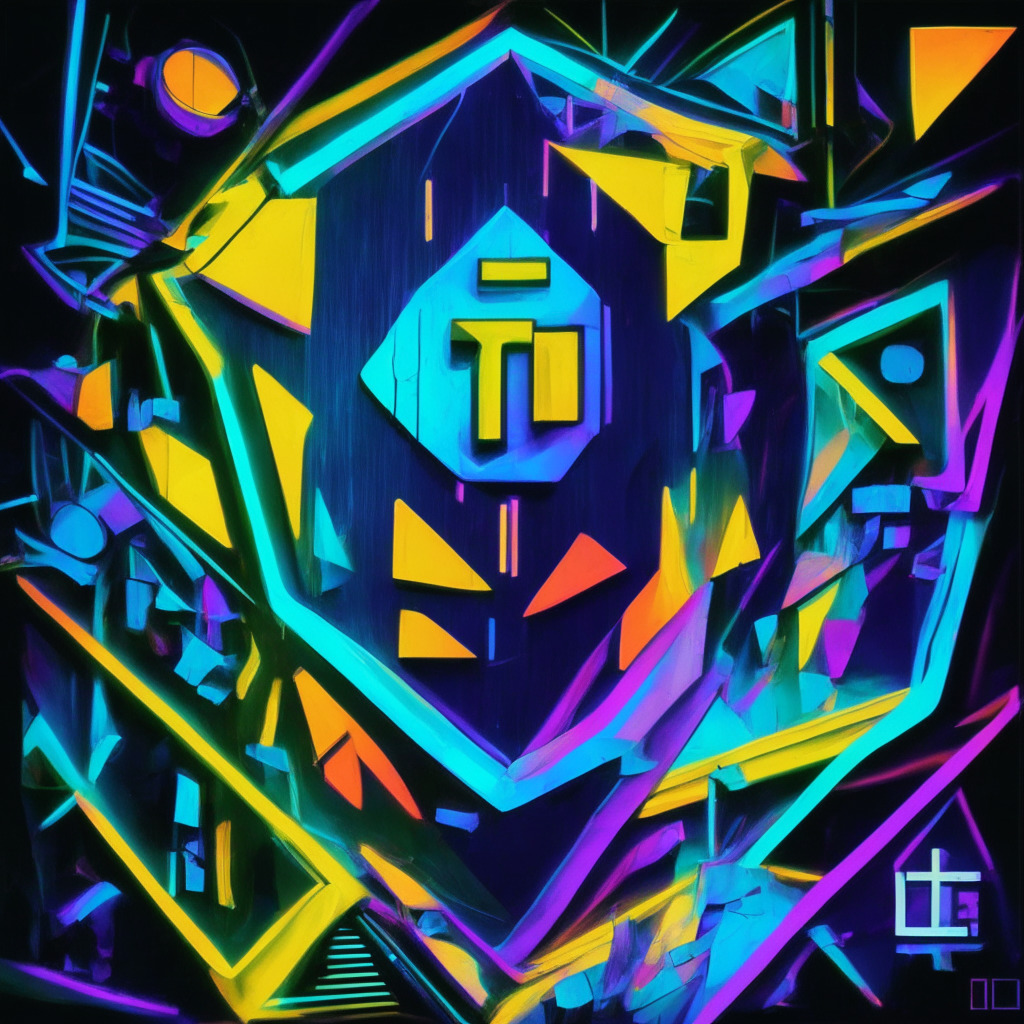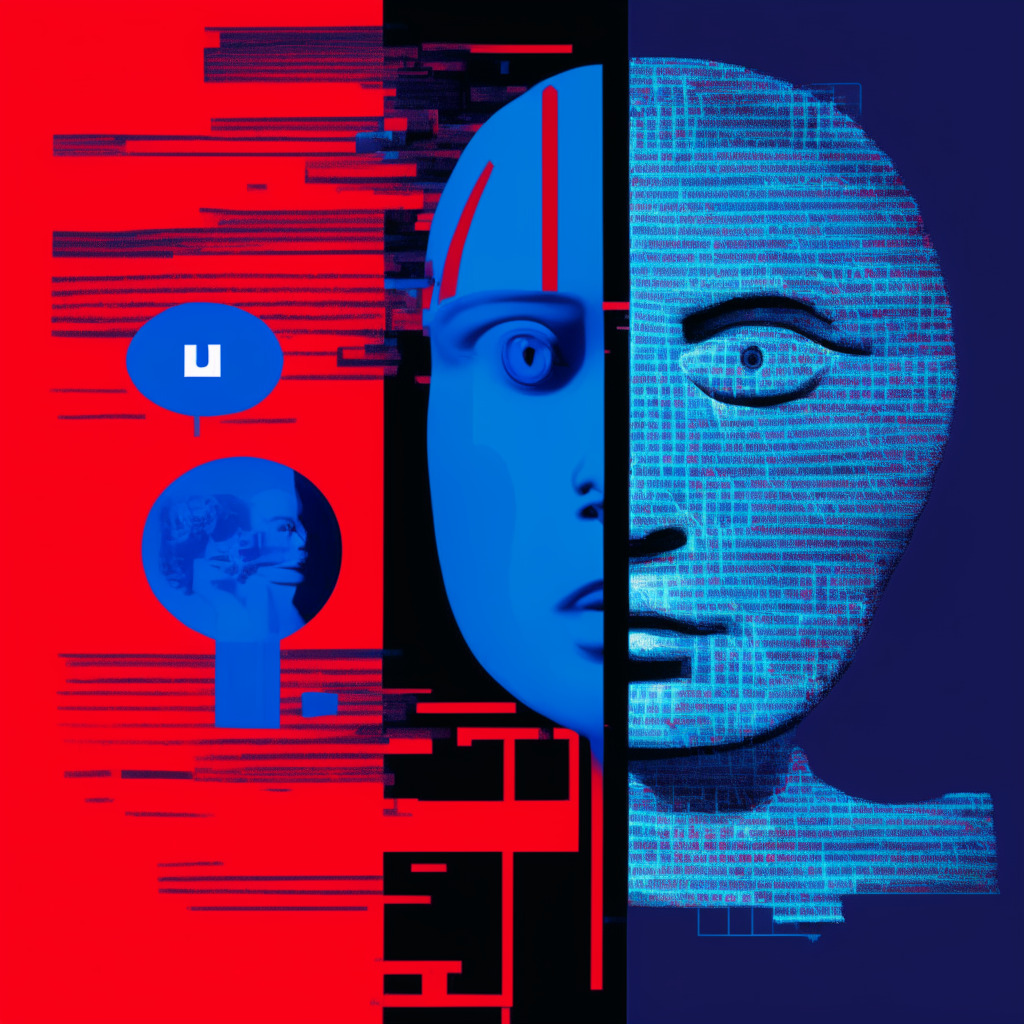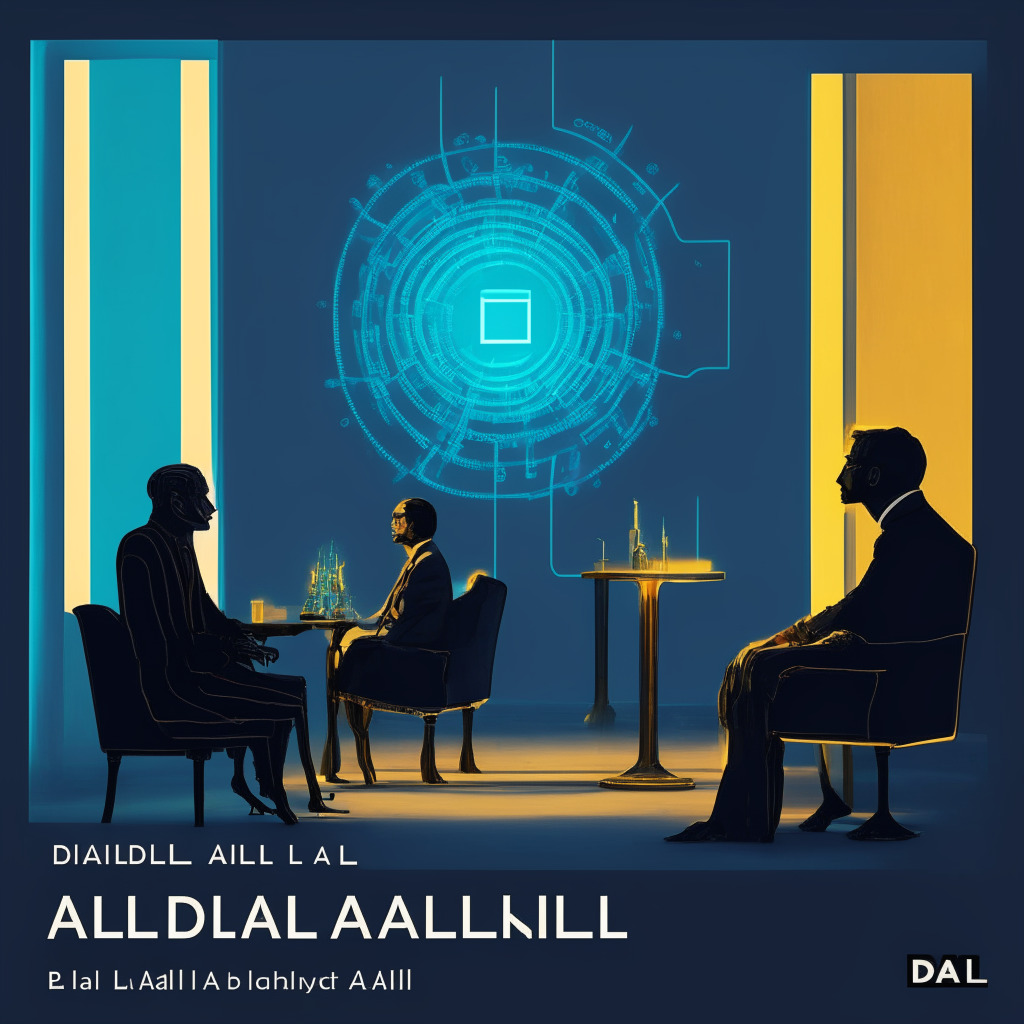The CEO of OpenAI, Sam Altman, praises Bitcoin for its potential to combat corruption due to its independence from government control. He and Joe Rogan express concern over US handling of cryptocurrency regulation and central bank digital currencies. Despite recent price dips, Altman and Rogan remain hopeful for Bitcoin’s future due to its limited supply and decentralized mining. However, they caution that like all investments, cryptocurrencies are volatile and risky and require careful research and strategy.
Search Results for: open ai
OpenAI’s Crossroad: In-House Chip Production versus Outsourcing amidst Global Shortage
Amid a global chip shortage, artificial intelligence firm OpenAI debates on whether to bring chip production in-house or continue working with chip suppliers like NVIDIA. This decision could present unprecedented challenges, but may also provide a pathway for managing technological advancements and supply scarcity in the broader tech industry.
Meta AI vs OpenAI’s ChatGPT: The Dawn of a New Social Media Interaction Era and Its Ramifications
“Mark Zuckerberg sets to launch Meta AI, interacting across platforms like Instagram and Facebook. Aiming to outdo OpenAI’s ChatGPT, Meta tailors AI products to distinct use cases and entertainment, scheduled to release to selected U.S users and integrate with upcoming smart glasses.”
Decentralization of AI: Inhibition by Regulation vs Growth through Open-Sourcing
“Brian Armstrong, CEO of Coinbase, is advocating for a ‘laissez-faire’ approach to artificial intelligence (AI) development, opposing AI regulation as it stifles innovation. He suggests decentralization and open sourcing as alternatives. Despite potential risks, Armstrong believes in fostering growth and rapid development in the AI field.”
Investigating OpenAI: Balancing Technological Innovation and European Data Privacy Laws
Poland’s data protection watchdog is investigating OpenAI’s ChatGPT following a complaint accusing the firm of “unlawful, unreliable” data handling. The case surfaces significant matters about personal data protection and OpenAI’s compliance with GDPR, reflecting a broader concern about maintaining a balance between technological innovation and privacy.
Riding the Blockchain Wave: OpenCover and Nexus Mutual Forge New Paths in Crypto Insurance
OpenCover, a decentralized insurance provider, has made its debut on Ethereum-fueled blockchain, Base, further expanding its financial capacity with Coinbase. The launch is part of a collaboration with Nexus Mutual, aiming to offer investors insurance-like coverage for the crypto industry. OpenCover intends to guard against protocol shortfalls and provides protective shield for traditional entities and forward-looking platforms.
The Unexpected Turn in the Insider Trading Case of former OpenSea Manager Chastain
Former OpenSea manager, Nathaniel Chastain, though appealing his insider trading charges, opted to serve his three-month prison sentence. Using confidential info for personal gain, Chastain’s misconduct highlights contentious boundaries in crypto trading regulation, reflecting on the volatile nature of blockchain technology adoption.
Combatting Scams in Crypto: Open Communication and Regulatory Aid Makes Waves in Australia
With a rise in digital currency scams, crypto exchanges are focusing on “breaking the trust” between victims and scammers. Solutions include automated and manual Anti-Money Laundering checks, education, and communication. However, fighting scams requires a collective effort involving crypto users, exchanges, regulators, social media platforms, banks, and more.
Enhancing Blockchain Security: A Deep Dive into OpenZeppelin’s Defender 2.0
OpenZeppelin, a pioneer in blockchain security, revealed Defender 2.0, a security enhancement specifically for blockchain communities that integrates a security audit into blockchain-based algorithms, mitigating potential cybersecurity vulnerabilities in creating secure decentralized applications. It’s aimed to strengthen smart contract security from development to deployment.
A Tale of Blockchain Misdeeds: Nate Chastain’s Insider Trading & The OpenSea Scandal
“The conviction of Nate Chastain, ex-head of product at OpenSea, shines light on the importance of regulations in blockchain technology and decentralized finance. Found guilty of insider trading and money laundering, his case underscores the complexity of digital asset regulation and the emerging legal landscape of blockchain technology.”
Balancing Fine-Tuning and Costs: OpenAI’s Customization for GPT-3.5 Turbo Unveiled
OpenAI has introduced customization for GPT-3.5 Turbo where AI developers can refine performance using dedicated data. This promising feature is met with anticipation, as well as skepticism, given potential implications such as setup costs, maintenance expenditures, and issues around data control and security.
Exploring the OpenAI Code Interpreter: Bridging the Gap or Breeding Complacency?
OpenAI’s code interpreter, developed through reinforcement learning from human feedback, bridges the gap between human language and computer code. Understanding coding practices across languages, it not only grasps code functions, but also identifies bugs, and suggests code improvements. Despite its versatility, it’s crucial to recognise its limitations and reliance on training data.
Uncovering the Political Bias in AI Chatbots: A Deep-Dive into OpenAI’s ChatGPT
“AI chatbot, ChatGPT, developed by OpenAI, has shown a tendency towards left-leaning responses in its discussions of political issues. The emission of bias might be a result of biased training data or the algorithm itself. Although AI brings advancements, biases and security concerns must be mitigated for safe adoption.”
Alibaba’s AI Rivals Meta’s Llama 2: Unpacking the Open Source Drama and Consequences on DeFi
Alibaba has disclosed two novel open-sourced AI models, Qwen-7B and Qwen-7B-Chat, aiming to enrich AI operations. These models support the academia, researchers, and commercial institutions, offering code, model weights, and documentation access. However, large corporations need a license for use.
Unveiling Nodle’s Open-Source Approach – Revolutionizing IoT and Blockchain or a Security Nightmare?
“Nodle has shared its Web3 Bluetooth ‘nanocomputer’ sticker, an open-source initiative, to improve the IoT industry. The Nodle N1 can attach to any object and has various uses from logistics to tracking. However, potential bugs in Nodle’s firmware could expose numerous devices worldwide to risks, presenting security and privacy challenges. Despite cybersecurity concerns, this technology’s transformational potential is undeniable, offering a decentralized alternative for IoT networks.”
Unveiling the Open Ordinals Institute: A Game-Changer for NFTs and Blockchain?
The Open Ordinals Institute, a non-profit committed to nurturing the development of nonfungible tokens (NFTs) on Bitcoin, aims to provide funding to developers of the Ordinals protocol. However, concerns arise about how centralizing efforts might affect the democratic openness that supports crypto growth. Interestingly, the Ordinals protocol’s growth could revolutionize not just NFTs on Bitcoin, but the whole crypto industry.
OpenAI’s ChatGPT App for Android: Bridging the Crypto and AI World
“OpenAI has officially released the ChatGPT app for Android users and it’s garnering attention in the crypto community. Bolstering safety and transparency features, it aims to stretch the limits of its large language model. Despite rising competition, OpenAI remains committed to responsible and ethical AI development, which coincides with the global collaboration and hefty investment in AI research.”
Blockchain: Revolutionizing Digital Finance or Opening Pandora’s Box?
“Blockchain technology asserts individual control over transactions, minimizes fraud risk, and offers transaction traceability. However, its decentralisation invites concerns over regulation, its robust security is still vulnerable, and its transparency could lead to privacy issues. Its future carries both potential and uncertainty.”
Unfair Practices or Unjust Scrutiny: FTC Probes into OpenAI’s ChatGPT and Its Implications
The Federal Trade Commission is rigorously investigating OpenAI’s ChatGPT, an AI conversation bot, for potential “unfair or deceptive privacy or data security practices”. This scrutiny raises questions about OpenAI’s privacy and data security protocol, and hints at possible financial penalties if any infractions are found. The tool’s undeniable potential is offset by significant ethical considerations and potential for misuse.
Breaking Down The AI Training Ethical Dilemma: Copyright Claims Against Meta Platforms and OpenAI
Authors Sarah Silverman, Richard Kadrey, and Christopher Golden accuse Meta Platforms and OpenAI of copyright infringement, claiming that their copyrighted content was used without permission for AI training. The lawsuit highlights the ethical boundaries around incorporating copyrighted material into AI technology development and could have significant implications for the blockchain and AI industry.
Bitcoin Cash Open Interest Skyrockets: Factors and Future Implications Explained
Bitcoin Cash (BCH) open interest has surged to over $400 million, reflecting improved market sentiment and a possible shift in crypto community attitudes. This increase is attributed to network upgrades, the introduction of “CashTokens,” and a significant exchange listing on EDX Markets.
Etherscan’s Code Reader: A Glimpse into Smart Contracts with OpenAI’s Help
Etherscan is beta testing a new feature called Code Reader that allows users to query OpenAI’s large language model for researching solidity smart contracts. This intuitive tool provides valuable insights for developers and non-developers to better understand smart contract operations and functionality. However, it shouldn’t be relied upon in isolation.
South Korea: Emerging Powerhouse in AI Chip Development and Collaboration with OpenAI
OpenAI CEO Sam Altman recently met with South Korean President Yoon Suk Yeol, discussing South Korea’s potential to lead in AI chip development, and expressing interest in investing in Korean startups and collaborating with chipmakers like Samsung Electronics. Altman encouraged reduced corporate regulations to foster AI projects and strengthen international standards.
Ethereum’s .box Domains: Bridging Web3 & Traditional Web or Opening Censorship Risks?
The Ethereum Name Service (ENS) is set to unveil the .box Top-Level Domain (TLD) in September 2023, marking the first domain name extension routable by both blockchain-native and traditional web DNS. This collaboration between ENS and My.box aims to help users own DNS-based and ENS-based names while bridging the gap between the traditional web and blockchain technology.
OpenAI CEO Sam Altman Meets PM Modi: AI’s Future in India, Global Regulations, and Potential Risks
OpenAI CEO Sam Altman is set to meet with Indian Prime Minister Modi to discuss India’s potential role in AI regulation, job market impacts, and the country’s capability in shaping global AI discussions. The collaboration could lead to significant advancements in the AI and technology sectors.
Radio Host Sues OpenAI: Defamation, AI Hallucinations, and the Future of Legal Responsibility
Georgia radio host Mark Walters sues OpenAI after ChatGPT falsely accused him of embezzlement in a precedent-setting case. The outcome will likely have implications for AI developers’ responsibility in future situations involving AI-generated misinformation and defamation claims.
AI’s Double-Edged Sword: OpenAI’s $1M Grant to Tackle Cybersecurity & Defend Against Malice
OpenAI commits to a $1M Cybersecurity Grant Program to support AI-driven cybersecurity initiatives, empowering defenders and elevating discourse around AI and cybersecurity. The initiative aims to advance cybersecurity capabilities, evaluate AI model efficacy, and enhance safety and security in the digital arms race.
Hacking of OpenAI CTO’s Twitter Account: Impact on Crypto Adoption and Online Security Debate
The hacking of Mita Murati’s Twitter account, promoting a scam cryptocurrency token, raises concerns regarding the security of high-profile individuals’ social media accounts. This incident emphasizes the need for vigilance and better online security practices, serving as a reminder that while blockchain technology offers potential and benefits, no technology is completely immune to threats.
AI Hallucinations: OpenAI’s ChatGPT, Process Supervision, and the Quest for Accuracy
Artificial intelligence systems like ChatGPT sometimes generate false information or “hallucinations,” raising concerns about factual accuracy. OpenAI is addressing this issue by enhancing ChatGPT’s mathematical problem-solving capabilities with process supervision, a promising method for improving performance and alignment. Understanding the broader implications of process supervision is essential for accurate AI deployment in the future.
Democratizing AI Governance: OpenAI’s $1M Grant Initiative for Ethical System Rules
OpenAI will award ten $100,000 grants for experiments in establishing a democratic process for AI system rules, aiming for responsible oversight of AGI and superintelligence. This initiative raises essential questions around AI governance and transparency, with results freely accessible to the public to promote ethical AI conduct and a responsible future for artificial intelligence.
OpenAI’s EU Dilemma: Adapting to AI Regulations or Withdrawing Services?
OpenAI CEO Sam Altman hints at potentially withdrawing ChatGPT services from Europe if compliance with upcoming EU AI regulations is unattainable. Altman calls for revising proposed regulations, with concerns over revealing copyrighted materials used in AI tools.
Apple Takes a Bite of OpenAI’s ChatGPT Profits: A Dance between Pioneers and Big Tech
OpenAI’s ChatGPT iPhone app has quickly climbed App Store charts, with Apple endorsing it as a “must-have” app. Apple’s infamous 30% cut, or “Apple Tax,” on new iOS subscriptions means the tech giant profits from every ChatGPT Plus subscription, highlighting the complex interactions among AI pioneers, big tech, and regulators in this emerging revolution.































